Water conservation is essential in addressing water scarcity issues, and adopting creative strategies can significantly reduce water consumption. Here are some strategies, including using ice packs instead of regular ice, that can help conserve water:
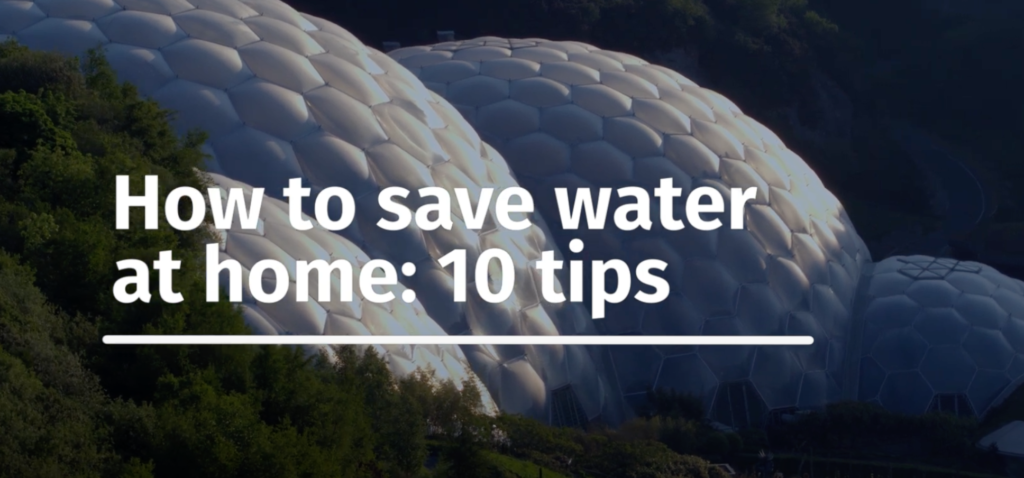
1. Use Ice Packs Instead of Regular Ice
Regular ice is often made from tap water, which is typically wasted once it melts. By using ice packs (such as gel ice packs or reusable ones), you can avoid the need to use potable water for ice. Ice packs can be reused multiple times, preventing the need to continuously produce new ice from water. Ice packs used in conjunction with the top rated coolers on sale will prolong the life of the ice pack, thus increasing energy efficiency.
Benefits:
- Reduces water wastage from ice melting.
- Ice packs are reusable and can be used multiple times, unlike disposable ice cubes.
- Cuts down on the energy needed to freeze water in large quantities.
2. Fix Leaks and Drips
 Leaking faucets, toilets, and pipes waste an enormous amount of water. Regularly checking for leaks and repairing them promptly can save thousands of gallons of water annually.
Leaking faucets, toilets, and pipes waste an enormous amount of water. Regularly checking for leaks and repairing them promptly can save thousands of gallons of water annually.
Tip: Install water-saving devices like low-flow faucets or showerheads to help prevent water wastage from everyday use.
3. Install Low-Flow Fixtures
Using low-flow toilets, showerheads, and faucets is one of the most effective ways to conserve water in the home. These devices are designed to use less water while still providing adequate performance.
Benefit: Reduces water consumption without sacrificing comfort or functionality.
4. Use a Dishwasher or Washing Machine Only When Full
Dishwashers and washing machines are designed to wash full loads of dishes or laundry. Running these appliances with smaller loads wastes both water and energy. Always wait until you have a full load before running them.
Tip: If your dishwasher or washing machine has an eco-mode or water-efficient settings, use them to further reduce water usage.
5. Rainwater Harvesting
Collecting and storing rainwater is an excellent way to reduce your reliance on municipal water sources, especially for outdoor watering needs like gardening, lawn care, or even washing cars.
Benefit: Reduces the amount of potable water used for non-drinking purposes.
6. Drought-Resistant Landscaping (Xeriscaping)
Choose plants that require minimal water once established, such as succulents, cacti, and native plants. Xeriscaping involves designing your landscape in a way that minimizes the need for irrigation, especially in areas with limited rainfall.
Tip: Group plants with similar water needs together, and use mulch to reduce water evaporation.
7. Water-Efficient Irrigation
If you need to water your garden, use water-efficient systems like drip irrigation or soaker hoses. These systems deliver water directly to the roots, reducing evaporation and runoff.
Tip: Water your plants in the early morning or late evening to minimize evaporation during the hottest part of the day.
8. Take Shorter Showers
Reducing the length of showers is a simple but effective way to save water. Consider using a timer or installing a water-efficient showerhead that reduces the flow rate while still providing a satisfying shower experience.
Tip: Aim for 5-minute showers to reduce water usage without sacrificing cleanliness.
9. Use a Broom, Not a Hose
When cleaning driveways, sidewalks, or patios, use a broom instead of a hose to avoid unnecessary water wastage.
Benefit: No water is needed for this task, and it’s just as effective.
10. Turn Off the Tap
 Many people leave the water running while brushing their teeth, washing dishes, or shaving. Simply turning off the tap while you’re not using water can save gallons over time.
Many people leave the water running while brushing their teeth, washing dishes, or shaving. Simply turning off the tap while you’re not using water can save gallons over time.
Tip: Teach kids and others in your household the importance of turning off the tap when not actively using water.
11. Use a Pool Cover
If you have a pool, using a pool cover when it’s not in use helps reduce evaporation, which can be a major cause of water loss from swimming pools.
Benefit: Helps retain water in the pool, reducing the need for frequent refilling.
12. Reuse Greywater
Greywater refers to water that comes from sinks, showers, bathtubs, or washing machines. If treated and filtered properly, greywater can be reused for non-potable purposes like irrigation or flushing toilets.
Tip: Check local regulations before installing a greywater system, as there are specific codes and standards for using greywater safely.
13. Use a Bucket to Wash Your Car
Instead of washing your car with a hose, use a bucket to wash it, which can save a significant amount of water. Also, consider using a car wash that recycles water.
Benefit: Reduces the amount of water used in each car wash.
14. Choose Water-Efficient Appliances
When buying new appliances, look for those labeled with WaterSense (for faucets and showerheads) or Energy Star ratings, which are designed to be more water- and energy-efficient.
Tip: Look for clothes washers with a “load sensing” feature that adjusts the water used based on the size of the load.
15. Avoid Overwatering Plants
Overwatering is a common mistake that wastes both water and can harm plants. Use a moisture meter to check the soil’s moisture level before watering to ensure that plants get only what they need.
16. Compost Instead of Using a Garbage Disposal
Using a garbage disposal sends food waste down the drain and typically requires running water to flush it. Composting instead reduces water waste and is better for the environment.
17. Use a Watering Schedule for Plants
Water your plants on a schedule based on weather and soil conditions rather than just when it seems necessary. This reduces excess watering.
Incorporating these strategies into your daily routine can help you reduce water usage while still maintaining a comfortable and functional living environment. Simple adjustments like using ice packs, repairing leaks, and switching to water-efficient appliances can make a big difference in preserving this valuable resource.
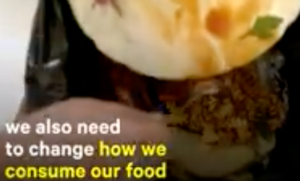 What we eat has a significant impact on conservation, as our food choices influence ecosystems, biodiversity, and the overall health of the planet. The production of food, particularly through industrial agriculture, can lead to deforestation, habitat destruction, and soil degradation, all of which threaten wildlife and disrupt natural cycles. For example, large-scale livestock farming is a major contributor to greenhouse gas emissions, while also driving the conversion of forests into grazing land or cropland, leading to the loss of crucial habitats for countless species. Similarly, the demand for crops like palm oil and soy often results in the destruction of rainforests, which are vital for carbon sequestration and biodiversity.
What we eat has a significant impact on conservation, as our food choices influence ecosystems, biodiversity, and the overall health of the planet. The production of food, particularly through industrial agriculture, can lead to deforestation, habitat destruction, and soil degradation, all of which threaten wildlife and disrupt natural cycles. For example, large-scale livestock farming is a major contributor to greenhouse gas emissions, while also driving the conversion of forests into grazing land or cropland, leading to the loss of crucial habitats for countless species. Similarly, the demand for crops like palm oil and soy often results in the destruction of rainforests, which are vital for carbon sequestration and biodiversity.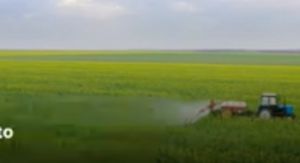 Conversely, making more sustainable food choices—such as reducing meat consumption, choosing locally grown or organic produce, and supporting regenerative farming practices—can help reduce these negative impacts. Making the right choices can start young. Picking the right
Conversely, making more sustainable food choices—such as reducing meat consumption, choosing locally grown or organic produce, and supporting regenerative farming practices—can help reduce these negative impacts. Making the right choices can start young. Picking the right  No matter where you live, you have probably heard people talking about the importance of conserving our power and electricity supply. If we turn off the lights when we leave a room, we will cut down on our power use, which will save us money on a power bill. The thing is; power comes in other forms. Not just wires that run into our home. With technology being what it is; we also use a lot of battery power and we should also learn how to conserve our environment through careful battery use.
No matter where you live, you have probably heard people talking about the importance of conserving our power and electricity supply. If we turn off the lights when we leave a room, we will cut down on our power use, which will save us money on a power bill. The thing is; power comes in other forms. Not just wires that run into our home. With technology being what it is; we also use a lot of battery power and we should also learn how to conserve our environment through careful battery use. Every power tool, laptop, smart phone, portable radio, and more all have one thing in common. They need power. There are some devices, especially tools, that can be wired to run on power, but most all of them use batteries as well. To ensure that those items continue to work properly, we must keep batteries in them. However, it is a simple fact that we have all accepted; batteries go dead. Smart phone batteries go dead and may eventually not hold a sufficient charge. Car batteries, marine batteries, and all other batteries are the same way. There are things you can do to prolong or shorten the life of any battery. For instance, instead of leaving your laptop plugged in all the time; take it off charge and allow the battery to drain fully before you recharge. This same technique works for all rechargeable batteries.
Every power tool, laptop, smart phone, portable radio, and more all have one thing in common. They need power. There are some devices, especially tools, that can be wired to run on power, but most all of them use batteries as well. To ensure that those items continue to work properly, we must keep batteries in them. However, it is a simple fact that we have all accepted; batteries go dead. Smart phone batteries go dead and may eventually not hold a sufficient charge. Car batteries, marine batteries, and all other batteries are the same way. There are things you can do to prolong or shorten the life of any battery. For instance, instead of leaving your laptop plugged in all the time; take it off charge and allow the battery to drain fully before you recharge. This same technique works for all rechargeable batteries. If you look in our landfills, one of the biggest issues is batteries filling them up. Large batteries, like those that we use in our vehicles and our boats are even bigger problems than the tiny “AA” batteries or those that we use in our phones. They not only take up more space, but they are filled with toxins that can cause damage to our environment in a big way. Therefore, it is important that you learn how to properly dispose of used batteries when you are done using them. In fact, in some states, it is illegal if you do not dispose of sealed lead acid batteries properly. Therefore, you will want to do what you can to protect the batteries. You can keep marine batteries that are not being used up off the floor in your garage and always keep them in a battery box when in your boat. You can check out this guide on battery boxes on
If you look in our landfills, one of the biggest issues is batteries filling them up. Large batteries, like those that we use in our vehicles and our boats are even bigger problems than the tiny “AA” batteries or those that we use in our phones. They not only take up more space, but they are filled with toxins that can cause damage to our environment in a big way. Therefore, it is important that you learn how to properly dispose of used batteries when you are done using them. In fact, in some states, it is illegal if you do not dispose of sealed lead acid batteries properly. Therefore, you will want to do what you can to protect the batteries. You can keep marine batteries that are not being used up off the floor in your garage and always keep them in a battery box when in your boat. You can check out this guide on battery boxes on 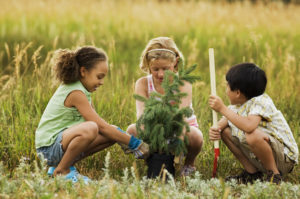 Every day you look at your home computer, there is a good chance that you will see something about the importance of conservation. There are different conservation efforts out there, and although not everyone pays as much attention as they should, there are a lot of us out there that want to take it one step further. There are people in this world that go way beyond recycling to ensure that they are taking part in the conservation of our natural resources. They get so involved with it that they use conservation as a family event, and the whole world benefits from it.
Every day you look at your home computer, there is a good chance that you will see something about the importance of conservation. There are different conservation efforts out there, and although not everyone pays as much attention as they should, there are a lot of us out there that want to take it one step further. There are people in this world that go way beyond recycling to ensure that they are taking part in the conservation of our natural resources. They get so involved with it that they use conservation as a family event, and the whole world benefits from it. Conservation efforts require people to take notice of the problems that our world is facing. It takes more than just a few people to make a real impact and for that reason, you must realize that conservation efforts are only as good as the people who are willing to participate in them. The more people involved, the better and more impactful every single person’s effort will become. We have to start today to conserve what we can for our children when they are old enough to have children, but to ensure that our great grandkids have what they need; we must also teach our children the importance of it. This means you have to make sure to involve your kids in it, no matter how big or small they are today.
Conservation efforts require people to take notice of the problems that our world is facing. It takes more than just a few people to make a real impact and for that reason, you must realize that conservation efforts are only as good as the people who are willing to participate in them. The more people involved, the better and more impactful every single person’s effort will become. We have to start today to conserve what we can for our children when they are old enough to have children, but to ensure that our great grandkids have what they need; we must also teach our children the importance of it. This means you have to make sure to involve your kids in it, no matter how big or small they are today. Kids are magnets. They seek knowledge and understanding of the world around them. This makes it easy to talk to them about doing the right things for Mother Earth. Encourage your kids to recycle, donate old toys that they do not play with so that they do not fill up the landfills, and teach them early in life to turn off lights and water when they are not using them. Beyond that, you can take your kids to the park and encourage them to clean up around the lake while teaching them the importance of not littering. Have your child help you plant trees, grow a garden, and do other things that will enable them to use what nature has provided, without chemicals to help those things grow. It will help if you have young children. Even toddlers can get in on the bonding experience that it will provide to your family. It can start as soon as they are able to be carried in a baby carrier for toddlers. The
Kids are magnets. They seek knowledge and understanding of the world around them. This makes it easy to talk to them about doing the right things for Mother Earth. Encourage your kids to recycle, donate old toys that they do not play with so that they do not fill up the landfills, and teach them early in life to turn off lights and water when they are not using them. Beyond that, you can take your kids to the park and encourage them to clean up around the lake while teaching them the importance of not littering. Have your child help you plant trees, grow a garden, and do other things that will enable them to use what nature has provided, without chemicals to help those things grow. It will help if you have young children. Even toddlers can get in on the bonding experience that it will provide to your family. It can start as soon as they are able to be carried in a baby carrier for toddlers. The  We all seem to have a fondness for our lawn. There are a lot of things that we can do in the yard. Barbecues and kids running around playing in sprinklers. It is a place that we can decorate with yard ornaments and various plants or shrubbery. We can relax in it and take care of it, reaping the reward of having a carpet under bare feet when outside. For this reason, many people are putting a lot of effort into protecting their lawns and ensuring that its
We all seem to have a fondness for our lawn. There are a lot of things that we can do in the yard. Barbecues and kids running around playing in sprinklers. It is a place that we can decorate with yard ornaments and various plants or shrubbery. We can relax in it and take care of it, reaping the reward of having a carpet under bare feet when outside. For this reason, many people are putting a lot of effort into protecting their lawns and ensuring that its  Chemicals cause damage to the soil, water that it may “wash” into, and more. It also has the ability to make people, pets, and wildlife sick. Is there a better way to handle keeping the grass green without those other chemicals? The answer is, “Yes”. Many people are choosing to go green with their lawn care. They choose grasses that promise to flourish in their part of the world, watering less often, but ensuring that the water has a chance to seep deeply into the ground, and avoiding chemical fertilizers and pesticides. Composting and using it as fertilizer for your lawn will add nutrients to the soil and keep your grass green. You can use natural pesticides on your lawn. There are even some natural pesticides that use food grade materials to ensure that they are safe, but effective at removing the few insect types that damage a lawn. There are many people who also aerate their lawn to ensure it is not too tightly packed to be healthy. In shady areas, you may consider planting
Chemicals cause damage to the soil, water that it may “wash” into, and more. It also has the ability to make people, pets, and wildlife sick. Is there a better way to handle keeping the grass green without those other chemicals? The answer is, “Yes”. Many people are choosing to go green with their lawn care. They choose grasses that promise to flourish in their part of the world, watering less often, but ensuring that the water has a chance to seep deeply into the ground, and avoiding chemical fertilizers and pesticides. Composting and using it as fertilizer for your lawn will add nutrients to the soil and keep your grass green. You can use natural pesticides on your lawn. There are even some natural pesticides that use food grade materials to ensure that they are safe, but effective at removing the few insect types that damage a lawn. There are many people who also aerate their lawn to ensure it is not too tightly packed to be healthy. In shady areas, you may consider planting  How much money do you spend each year on fertilizers and pest control chemicals that barely work? If you multiply that by everyone in your neighborhood or your community, the dollar amounts soon become unreal. Then you have to look at how much damage all those chemicals are doing to the soil quality and the water quality in your area. Is it worth it when there are other,
How much money do you spend each year on fertilizers and pest control chemicals that barely work? If you multiply that by everyone in your neighborhood or your community, the dollar amounts soon become unreal. Then you have to look at how much damage all those chemicals are doing to the soil quality and the water quality in your area. Is it worth it when there are other,  We have all seen the commercials on television about countries that do not have enough food to survive in their area of the world. We may look away from the television or we may watch it wondering why they do not grow more food for themselves, but the facts remain the same. Then you have others who spend their day eating some of the food that they have available. They throw away the rest. In an average day, how much food do you feel your family wastes? Why do we waste it? Does it go bad before you eat it, or do you simply find that you do not want it? Either way, food conservation is the area we fall short in when conserving. It alone requires the single biggest effort for us all.
We have all seen the commercials on television about countries that do not have enough food to survive in their area of the world. We may look away from the television or we may watch it wondering why they do not grow more food for themselves, but the facts remain the same. Then you have others who spend their day eating some of the food that they have available. They throw away the rest. In an average day, how much food do you feel your family wastes? Why do we waste it? Does it go bad before you eat it, or do you simply find that you do not want it? Either way, food conservation is the area we fall short in when conserving. It alone requires the single biggest effort for us all. Think about a restaurant that closes its doors in the evening hours. When they close their door, the food that they have left gets inventoried and tossed out. During the day, that same restaurant may have to toss out several burgers and fries because they prepare the food and then its shelf life ends before someone buys it. Grocery stores are the same way. They put foods out and then it may spoil before someone chooses to buy it. They also have to keep up with “sell-by” dates and anything that has reached its max shelf life, even though it may be perfectly good, has to be tossed out. In our own homes, we may buy a bunch of bananas thinking we will eat them, but then throw them out because they get too ripe. Life also takes us by surprise sometimes and the meats or salads that we put in the fridge go bad before we eat them. Most of the time, we think only of the money that we wasted by buying something we had to throw away. What we should be doing is trying to think of ways to avoid throwing those food items away.
Think about a restaurant that closes its doors in the evening hours. When they close their door, the food that they have left gets inventoried and tossed out. During the day, that same restaurant may have to toss out several burgers and fries because they prepare the food and then its shelf life ends before someone buys it. Grocery stores are the same way. They put foods out and then it may spoil before someone chooses to buy it. They also have to keep up with “sell-by” dates and anything that has reached its max shelf life, even though it may be perfectly good, has to be tossed out. In our own homes, we may buy a bunch of bananas thinking we will eat them, but then throw them out because they get too ripe. Life also takes us by surprise sometimes and the meats or salads that we put in the fridge go bad before we eat them. Most of the time, we think only of the money that we wasted by buying something we had to throw away. What we should be doing is trying to think of ways to avoid throwing those food items away. According to some statistics, Americans alone waste approximately 134 billion pounds of food each year. A lot of this food is usable, but unwanted. Most of the time, it is because we live by the “Best By” dates, even though food can usually be edible for long after it is past this date. One great example of this is
According to some statistics, Americans alone waste approximately 134 billion pounds of food each year. A lot of this food is usable, but unwanted. Most of the time, it is because we live by the “Best By” dates, even though food can usually be edible for long after it is past this date. One great example of this is  When you look around you, what do you see? Chances are good, you do not see an area of land that is untouched by human hands in some ways. At one time, we lived in a land that was untouched. Animals had more room to roam, grass and trees were abundant, and there were fewer homes, buildings, and concrete. The air was fresher, no one had to think about the water supply, and there were always plenty of hunting opportunities for those who lived off the land. Times have changed and the resources that were once a part of our world have dwindled in most areas. Therefore, conservation efforts were put into action and it is something that we should all respect and take part in whenever it is possible for us to help the world we live in.
When you look around you, what do you see? Chances are good, you do not see an area of land that is untouched by human hands in some ways. At one time, we lived in a land that was untouched. Animals had more room to roam, grass and trees were abundant, and there were fewer homes, buildings, and concrete. The air was fresher, no one had to think about the water supply, and there were always plenty of hunting opportunities for those who lived off the land. Times have changed and the resources that were once a part of our world have dwindled in most areas. Therefore, conservation efforts were put into action and it is something that we should all respect and take part in whenever it is possible for us to help the world we live in.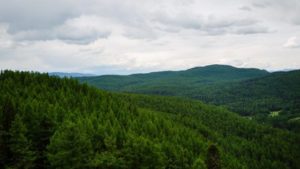 For a moment, think about the stories you may have heard growing up about a wild animal that roamed freely. Untamed by humans and living off the lands that it called home. It may have been an exotic animal or a horse running free through a field. Thanks to humans, those animals are fewer now than they used to be. Humans captured and tamed the horses to help them and many animals killed as our food needs increased. At times, we have animals that came into our area to protect our homes and businesses after taking it from them and pushed them into other areas.
For a moment, think about the stories you may have heard growing up about a wild animal that roamed freely. Untamed by humans and living off the lands that it called home. It may have been an exotic animal or a horse running free through a field. Thanks to humans, those animals are fewer now than they used to be. Humans captured and tamed the horses to help them and many animals killed as our food needs increased. At times, we have animals that came into our area to protect our homes and businesses after taking it from them and pushed them into other areas.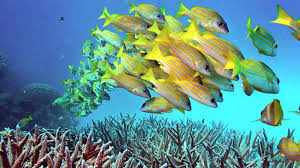 If our government agencies did not take part in the attempt to preserve certain areas for the animals and natural habitats, we would attempt to fill those areas as well. Eventually, we would have a situation where more animals would end up near extinction because they were run out of their homes to make room for ours. More of our worlds natural resources would be used up. Fewer trees would mean more pollution and less fresh air for us to breathe. If there weren’t specific times or limits for when we could hunt certain types of animals, the animals we seek would become extinct. This includes both land animals and fish.
If our government agencies did not take part in the attempt to preserve certain areas for the animals and natural habitats, we would attempt to fill those areas as well. Eventually, we would have a situation where more animals would end up near extinction because they were run out of their homes to make room for ours. More of our worlds natural resources would be used up. Fewer trees would mean more pollution and less fresh air for us to breathe. If there weren’t specific times or limits for when we could hunt certain types of animals, the animals we seek would become extinct. This includes both land animals and fish.